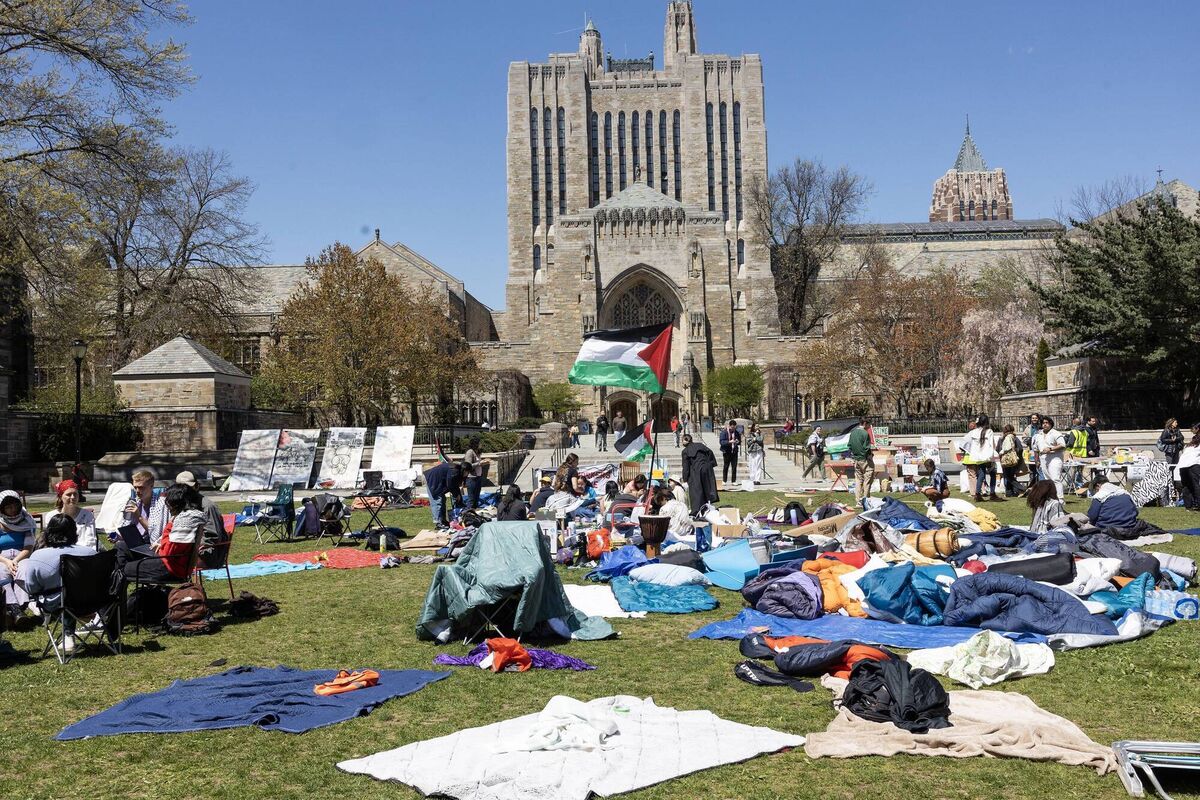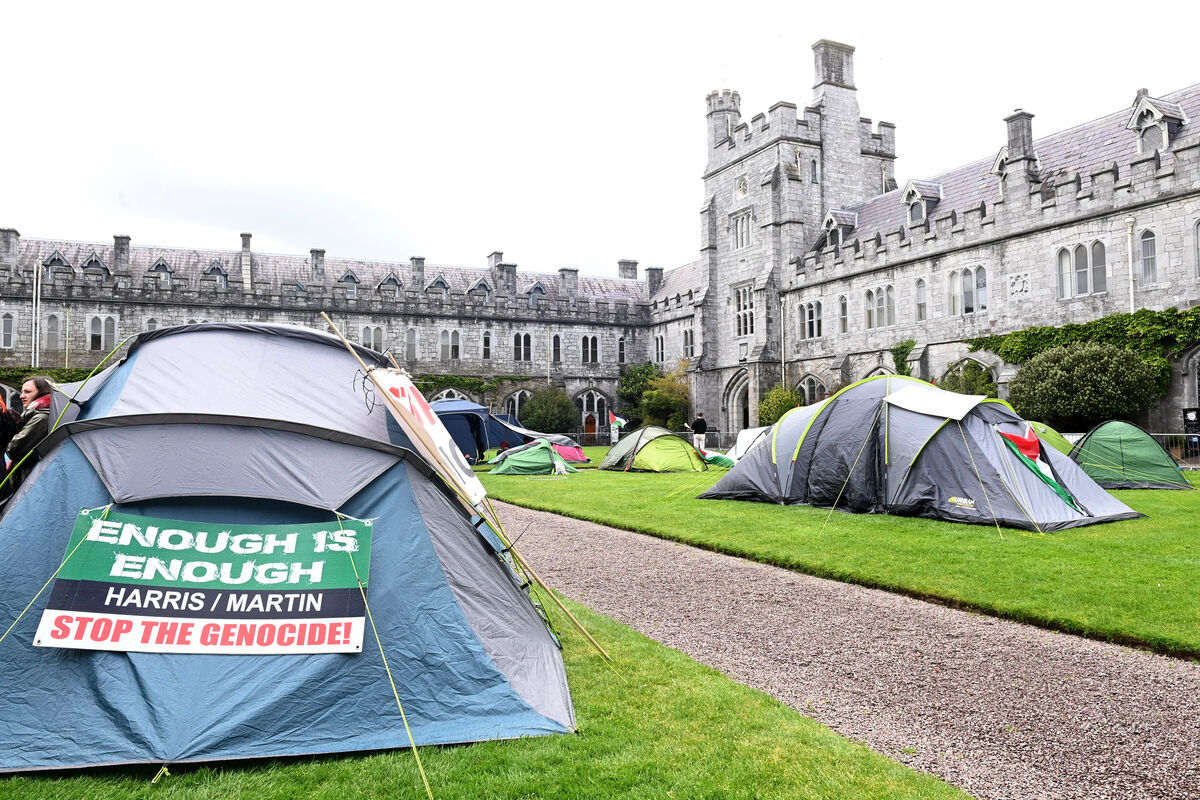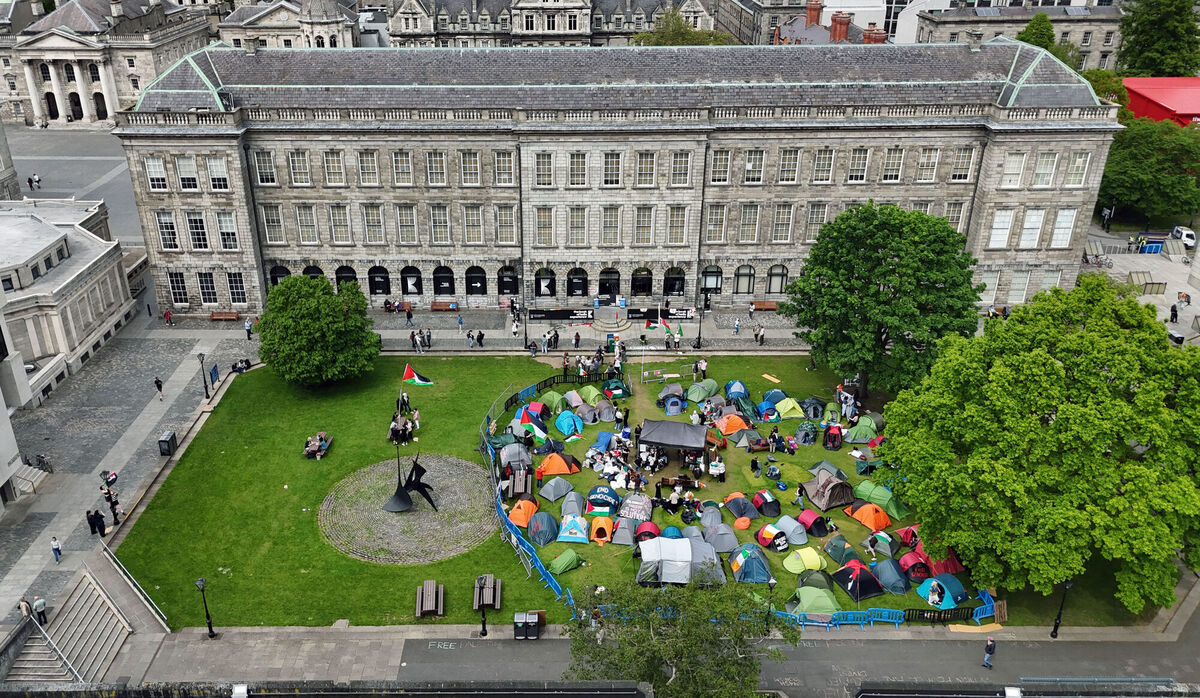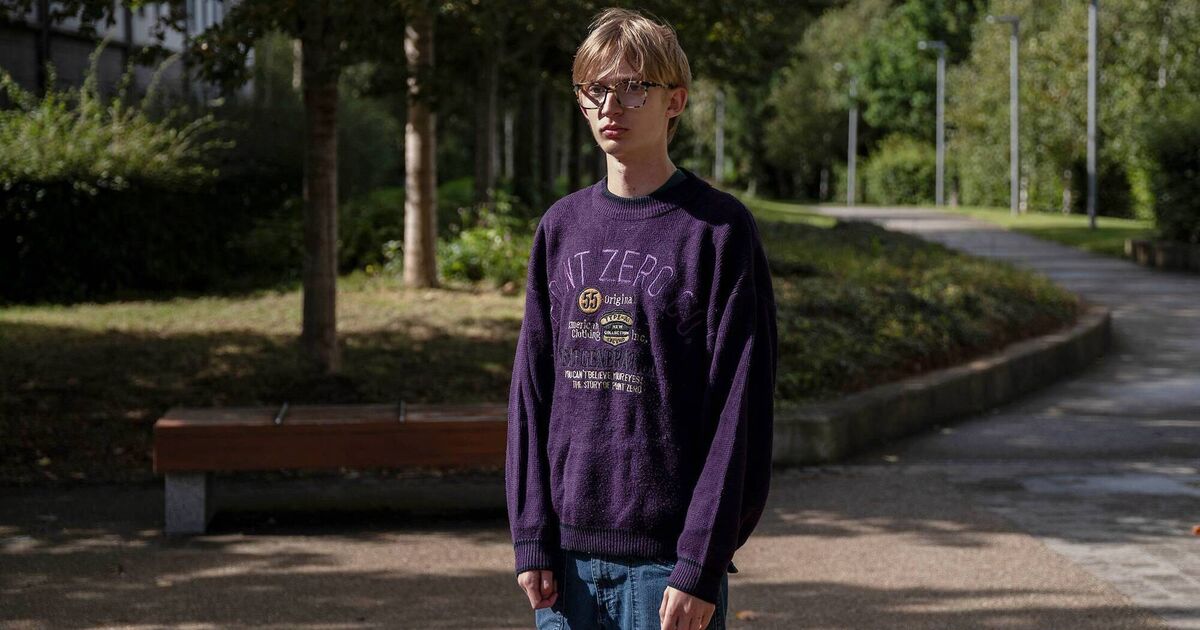When Jack Grindley saw Yale University students being arrested at pro-Palestine protests in his native New Haven last year, he began thinking about going abroad to study. The 17-year-old landed on Ireland.
“I’m less worried about speaking my mind,” the incoming University College Dublin fresher said of his new home. “Especially given how Trump is trying to intervene in our education system.”
Grindley is part of a growing movement of Americans who, for political, financial and personal reasons, are planning to study in Ireland.
And like others who intend to stay for more than a year, he’ll not only have to deal with the usual challenges of homesickness and cultural shock, but also the very Irish predicament of finding a place to live in one of the world’s toughest housing markets.
Jack Grindley is part of a growing number of Americans choosing to study in Ireland. As of August, the number of Americans accepting offers for graduate courses starting this academic year at Trinity College rose 40% over the previous year.
For undergraduate courses at the university, the percentage of Americans accepting offers is up 6%.
 Yale University students reoccupy a central lawn on campus and establish a second Gaza Solidarity camp after the first tents were taken down by campus police in April 2024. Photo: Andrew Lichtenstein/Corbis via Getty Images
Yale University students reoccupy a central lawn on campus and establish a second Gaza Solidarity camp after the first tents were taken down by campus police in April 2024. Photo: Andrew Lichtenstein/Corbis via Getty Images
Similar trends are playing out across the country: just before the start of the academic year, the University of Limerick reported that 16% more Americans were enrolling compared to the previous year, and at the University of Galway, applications from the US jumped 50% for 2025 compared to 2024.
Ireland isn’t the only European country trying to capitalize on an exodus of students from the US, but it does have several advantages – English is the predominant language, and one in six American citizens identify as having Irish heritage.
While tuition fees are more expensive for international students than Irish or European ones, they still can be significantly cheaper than in the US.
Ireland is also among the most pro-Palestinian countries in Western Europe — a factor that came up repeatedly in interviews with young Americans who had decided to study here, and who felt they were being silenced at home.
On October 7, 2023, Hamas, considered a terrorist organization by the US and EU, attacked Israel, killing around 1,200 people and kidnapping some 250. That sparked a war in Gaza that has killed more than 63,000 Palestinians, according to the Hamas-run health ministry, which doesn’t distinguish between civilians and combatants.
In Ireland, sympathies with the Palestinian people run deep over what some see as shared colonial struggles. Unlike in other countries, university administrations have been willing to engage with pro-Palestinian student campaigns. Last year, Trinity pledged to divest from Israeli companies active in the territories.
But before incoming Americans are able to engage in campus life, they need to find a place to live.
Kristin Hamaker, director of college programs at admissions consultancy Beyond the States, also noted that unlike most universities in Europe, “Irish colleges tend to have more amenities for US students and own their own student housing”.
For a country in the thick of a serious housing crisis, guaranteed accommodation is a huge deal — but it’s typically only offered to first years, and even then can be oversubscribed.
After that, students are left to fend for themselves. While Ireland’s housing shortage originated with the 2008 global financial crash, which destroyed the country’s economy and halted new build construction, the situation has only since continued to escalate.
Soaring construction prices, planning delays and uncertainty around rent control policies have made it harder than ever to find housing.
The problem is particularly acute for students. For the 2023/2024 school year, an estimated 48,600 students needed housing in Dublin, according to a study by the accounting firm KPMG. In the next 10 years, that number is projected to increase by 22%.
 A student encampment set up on the main quadrangle at UCC to force the college to divest links with Israel. Ireland is among the most pro-Palestinian countries in Western Europe, something that attracted young Americans to come and study here. File picture: Larry Cummins
A student encampment set up on the main quadrangle at UCC to force the college to divest links with Israel. Ireland is among the most pro-Palestinian countries in Western Europe, something that attracted young Americans to come and study here. File picture: Larry Cummins
Meanwhile, purpose-built student housing — accommodation built by private developers specifically for students — is already operating at near capacity in major cities, said Giorgio Ferrari, a researcher at estate agent Colliers. That leaves many students no choice but “to seek options in an already strained private rental market”.
Makena Margolin, a recent Trinity graduate from Long Beach, California, recalled the challenge of securing a place to live before her second year.
After looking for almost a month, she “ended up finding something on some kind of random Facebook group, but only two weeks before term started”. And that, she added, was only a room, not a whole apartment.
Ireland’s housing crunch has supercharged the market for purpose-built student housing, “really lucrative” sector, said Lorcan Sirr, a senior lecturer in housing at Technological University Dublin.
If a site comes up near a campus, investors will knock each other out trying to outbid each other.
That’s eased pressure but also raised concerns about affordability: “Whatever they pay for the site sets the market price for land in that area. It does have an inflationary impact.”
Nicholas Buckley is an incoming first year at Trinity College who plans to study economics and Spanish. Looking for a place to live while relocating from New Jersey was a “stressful process”, he said, but he eventually found a spot in a double room in privately-run student housing.
Though relieved, Buckley isn’t happy about having to pay more than €300 per week. “Most accommodations filled up quickly,” he said, “so I didn’t have a choice but to rent the pricey room.”
According to University College Dublin, students spend an average of just over €1,000 per month on rent, making Buckley’s higher than average. Still, demand for the building’s 1,000 beds is outpacing supply — potential renters now have to go through a waiting list.
To locals, such prices can seem out of reach, especially since signing a new lease for an entire home or apartment in Ireland cost nearly €2,200 a month as of the end of last year.
“Not a lot of Irish students would be able to move out or be able to afford any student accommodation,” said Stephen Conneely, a recent Trinity graduate from a suburb of Dublin. Like 40% of Irish students, he lived at home during his studies.
“It seems like the pricing of private student accommodation, which are quite recently constructed, is geared more towards international students who are more likely to afford the rent.”
The Government acknowledges that adding supply would ease overall pressure on the market, and has taken measures to lure back developers, who had largely stopped building rental apartments in Ireland.
 Students taking part in an encampment protest over the Gaza conflict on the grounds of Trinity College in Dublin last year. The university pledged to divest from Israeli companies active in the territories. File photo: Niall Carson/PA
Students taking part in an encampment protest over the Gaza conflict on the grounds of Trinity College in Dublin last year. The university pledged to divest from Israeli companies active in the territories. File photo: Niall Carson/PA
In June, authorities changed the country’s rent control policy, which caps price increases at 2% a year, to exempt newly built apartments.
The move, which goes into effect next March, left one big question open — whether purpose-built student housing would also be exempt from the 2% ceiling.
That uncertainty has developers anxious to see what will happen. In a statement to Bloomberg, the Department of Housing said that officials are currently working on legislation to determine how pricing for student housing would be regulated, but declined to provide details of what that might look like.
In the meantime, students still need places to live.
Margolin, the graduate, is again back on the rental market, trying to find an apartment to share with an American friend entering her final year at Trinity. Until they do, they’re staying in an Airbnb.
“We’ve put in inquiries on Daft, rent.ie, and the individual listing agent sites, and out of 48 applications, we’ve only viewed three. It’s brutal out here, as Olivia Rodrigo would say.”
Grindley, the student from New Haven, is set for the first year — his university will provide him with housing. But after that, he’ll be on his own.
Bloomberg

